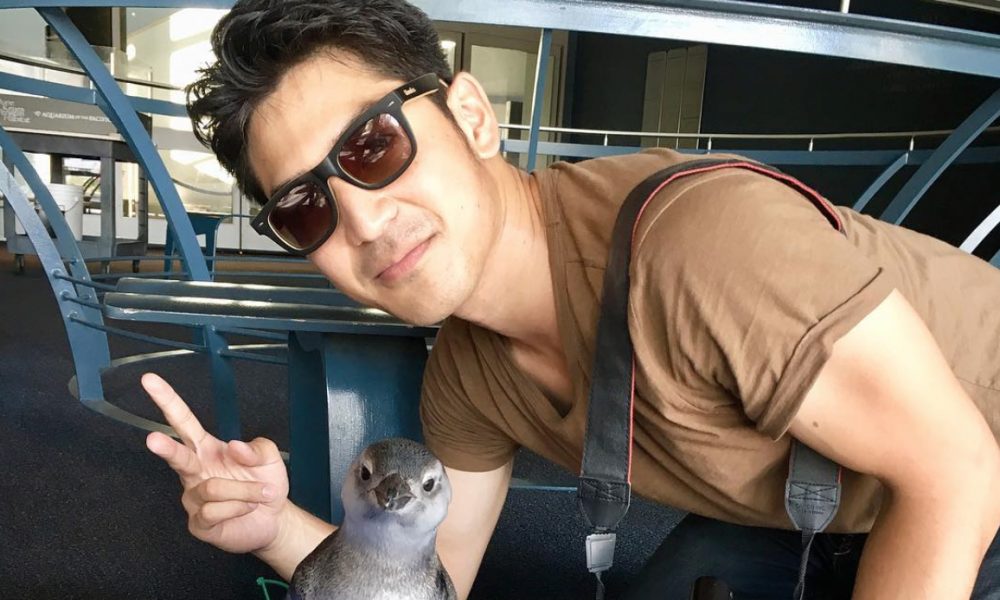

Today we’d like to introduce you to Daniel DeArco.
Daniel, can you briefly walk us through your story – how you started and how you got to where you are today.
If you asked me ten years ago where I’d be, I would have never guessed the outcome. I mean technically, I shouldn’t be here. My creative career begins with a near death experience, and doctors telling me that it was my responsibility to cherish the life I was spared. Faith is born from despair, after all.
Back in 2011, I was actually an acrobat who wanted to be in Cirque Du Soleil. I trained 3-5 days a week and had always been a bit of an outcast socially. I was very creative, so I felt the life of a traveling performer would be perfect for me. No higher education required–just pure skill, charisma, and hard work. I made it a goal to audition within the following year, but fate had other plans for me.
On December 2nd, 2011, I had a big accident while I was training alone, and landed directly onto my head. Under sheer force, my neck had compressed together like a spring, and I heard a large crack propagate through my upper spine. All of a sudden, my arms slowed down, my upper body went numb, and it was like I could only move in slow motion. The pain felt something like a person with frozen hands, squeezing my bones together. This feeling of not being able to control my own body was one of the most terrifying experiences of my life. Shortly after, my body went into shock, but somehow I was able to move my limbs with limited mobility.
Following my X-Ray, CAT scan, and hospital transfer, I was told that two of my cervical vertebrae (C4 and C5) were broken. The C4 was shoved out of place, and the C5 was cracked in half. One of the nurses questioned how I even stood up after hitting my head since the C4 vertebrae controls the lungs, and any wrong step could’ve resulted in me suffocating along the way.
I’ll never forget that bizarre sequence of events. Clouds on the hospital ceiling, speeding past my eyes, then five strangers surrounding my body in the ER, stripping me naked, and preparing me for a rushed MRI scan. When highly acclaimed neurosurgeon, Dr. Terence Chen, sat down next to me in the Intensive Care Unit, his first words to me were: “Daniel, I want to call you one whole person right now, but technically, your head should have fallen off your body. The only reason you made it is because the muscles surrounding your neck are stabilizing its position. Do you understand? You’re very lucky.”
Not only was I like a real-life zombie, but according to the tests, the broken bones in my neck were under 5 millimeters away from puncturing my spinal cord, rendering me either paralyzed for life or dead. They actually had to leave my neck broken for three days, because I was in such critical condition. For neurosurgeons, strategy was everything.
At some point between my morphine highs and trippy slumbers, I woke up and looked around the ICU center. You never quite forget the sight of a man walking right past you with half his face burned off… I thought to myself, “I’m one of these people now. How did I get here again? What will my life mean after this?”. The questions began racing like crazy.
After a 6-8 hour operation, I was gifted with a bunch of hardware that would never leave my body. Roughly 50% of my neck was now made of metal (tantalum plates, titanium screws, and an artificial bone graft). Ironically, post op actually hurt way more than actually breaking my neck. I found that the human body does a fantastic job at resisting foreign metallic objects near your spine. About 5 of those 14 days were dedicated to me re-learning how to stand up and walk again (without a cane!), since I had lost most of my muscle from staring at the ceiling 24/7, and eating jello, of course.
Finally, I was discharged from the hospital, but not before having several checkups with my doctors. One of them told me that most people with these neck injuries don’t get a bail from it. They either sit in a wheelchair the rest of their lives or they pass away from spinal trauma.
What she said next helped change my life.
“People around the ICU are calling you a miracle. After you recover, you’ve got some mountains to move.”
I didn’t exactly, “move mountains”, for a while. For four months, I sat depressed at home, watching Grey’s Anatomy (I missed the hospital food surprisingly), eating top ramen, and playing Resident Evil 6 with my brother. Honestly? The game was a solid 3 out of 5, but it had co-op.
One day, when I was being all depressed, I realized what I had become: an empty shell without a purpose. I needed something, anything. I then looked to the side, and there it was; my camera sitting on the table, staring right back at me.
When I went back to resume my college courses, the life lesson finally hit me. “WTF am I doing here?”, I said. It didn’t make sense to just go back to the way things were after my existential crisis, and more importantly, my second chance. I had to do things differently. I had to live a life I was proud of. For me, and those around me. This burning desire to be my most creative self had bombarded my mind.
I immediately dropped out of college with a DSLR in my hands and decided to look into what it’s like starting a small business as a 20 years old. There wasn’t nearly as much influence or information on the topic as there is now, but that didn’t stop me. This camera that I previously used to record my training progress was repurposed for photography, short films, and content creation.
Over the span of 5 years, it started with me shooting portfolio work with friends, then eventually with models/actors, then with small businesses, and eventually doing commercial work for large companies and magazines. I’ve shot everything from product launches to fashion look books, to events––but there was one content genre that I was always drawn to: Industrial Technology.
One little detail that I left out was that the hardware in my neck generated a lot of my curiosity about the technology world. How do people develop this material? Where is it manufactured, and with what tools? It’s made on a CNC machine? What’s that? How does this metal not infect the tissue around my neck? I began purchasing a lot of tools and machinery and became a bit of an engineer while I was simultaneously working as a content creator professionally. It’s probably obvious by now that these two interests merged together eventually.
Nowadays, I prefer not to call myself a photographer or filmmaker. I’m more of a content director/creator, and I work as a content consultant for industrial companies. I shoot still, but I take a very big picture standpoint when I’m helping a client out. For me, it’s really not about if there’s too much blue in the midtones, or if every pixel is perfect. Are the images or videos leading to more customers? What story is it telling? We love our products, and our iPhones, and our clothing, but how is it all made? Part of what I do is showing people that other side.
Whether it’s manufacturing, developing tech, process engineering, automation, etc. etc… these are all things that get both my right and left brain stimulated. It’s my obsession, but if I’m being honest, I just love the idea of making something from nothing. In my opinion, that’s the beauty of life itself.
Has it been a smooth road?
It has most definitely not been a smooth road, but if it were smooth, there’d be no story to tell!
One of the big struggles for me was gaining confidence in my ability to sell ideas, services, or products. I was very timid growing up, and I was a black sheep who was unorthodox. Not a great mix for a salesman. How I got over that was by working on myself, getting into more social situations that challenged me, and constantly reaffirming to myself that I did great work. It’s one thing to receive compliments from others, but it’s another to believe them internally.
Another struggle was learning how to show my personality through my work. Nowadays, it’s incredibly hard to stick out, because everybody watches the same influencers, or has the same inspirations. It seems like a “hive mind”, approach to content creation has ensued, after the rise of social media these past six years. In the beginning of my career, there was less competition, but also less opportunities for exposure. The hierarchy/seniority/gatekeeping methods of my industry were still hard to work through. I used a lot of photo & video techniques that I saw online from others, but my work didn’t stand out in my opinion. What I eventually gained inspiration from were things that were completely unrelated to the industry: animated films, philosophy, martial arts movies, engineering, etc. How I visualized photos and videos was no longer dependent on what I saw from others like me. I found that the more oblivious I was to the content around me, the more my content stood out to others. Kinda weird how that works!
I will say that the last struggle is the loneliness. When I started, I thought that I would be happy and free leaving my corporate job (I did work several of them) and working for myself, but that’s the easy part. The thing you have to work on is financial maintenance, upholding your focus on client/customer work, and NOT killing yourself in the process from malnutrition or depression. I saw my corporate job as my safe house, and when I left, I walked into a war zone where you sometimes have to sleep in a trench. Not what I expected at first, but I have other businesses I’d like to start in the future and it’s just part of the process.
We’d love to hear more about your work and what you are currently focused on. What else should we know?
I was predominantly known as a photographer and filmmaker for majority of my career; however, now I’ve moved more into content direction and strategy. I still work as a content creator if the client specifically wants the type of work that I shoot.
Although I still work with a variety of companies, my main specialty is in industrial content direction, so anything that deals with automation, manufacturing, CNC machining, process engineering, or overall technology, I’m involved with. Industrial companies aren’t exactly the most creative bunch out there since they come from the STEM fields, and many of the older businesses are just now getting on social media. Since I myself have a background in both manufacturing and visual arts, I help these companies develop a marketing strategy for their content. I offer consultations, and I also will teach them about how to bring their creative work in-house. In other words, if they don’t have me creating the content, I can teach their marketing department how to do it themselves, give them the tools to be successful without me once I’m gone, and we map out how to use social media to target their B2B leads or customers.
I think what sets my work apart from others is just the fact that I don’t need to be the actual content creator, but I bring the experience of one. Since I’ve worked in manufacturing, I understand the importance of production, but I also want it to look sexy. Why aren’t these videos more like Iron Man scenes? The reason nobody thinks industrial tech is cool is because nobody portrays it as such. It’s seen as grungy, blue collar, laborious, and unrewarding. I’d like to switch that perspective a bit. If we become too ignorant to how things are made, we sacrifice understanding for convenience.
Is our city a good place to do what you do?
To be frank, I bounce around a lot. I work a lot between LA, Silicon Valley, and I accept international work as well. If you’re a content creator, then Los Angeles (in my opinion), is a very creative city with lots of opportunity for fashion, e-commerce, product design, entertainment, real estate, fitness, and health. When I was focused on photography, I worked a lot in fashion, product, and e-commerce.
I can’t quite describe Los Angeles as the holy grail for industrial-type work though. If I went to the midwest or Saxony, Germany or Shenzhen, China, the focus would be very different from LA, so I’d say that different regions prioritize different industries based on demand. I do find many companies in Los Angeles that need help with the kind of content I work on! But again, it’s not exactly what LA’s known for. When I’m in LA, I still pick up some occasional fashion or product clients.
Contact Info:
- Website: http://danieldearco.com
- Phone: 3237880744
- Email: [email protected]








Suggest a story: VoyageLA is built on recommendations from the community; it’s how we uncover hidden gems, so if you or someone you know deserves recognition please let us know here.













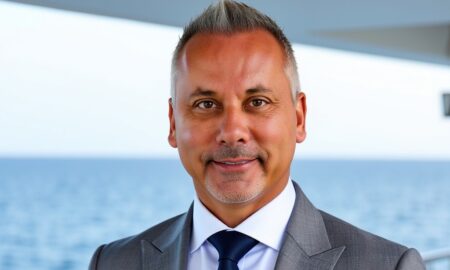
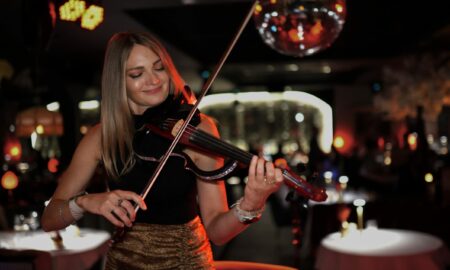

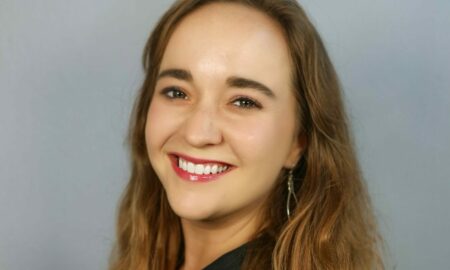
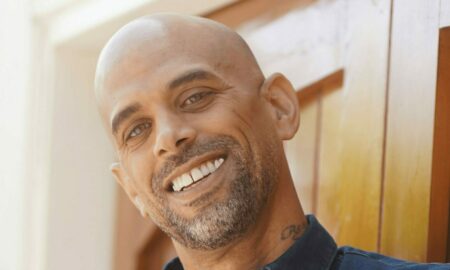


Franci Lucero
September 10, 2019 at 21:09
Hello Daniel,
I will always be your biggest fan! There is nothing you can not create in your mind and make happen! I have seen it over and over again. You are a gift to anyone who has the opportunity to know you as an individual and as a hard working gifted individual. You were a huge asset to my photography business way back when! Love you to the moon and back! Franci Lucero Photography by Franci